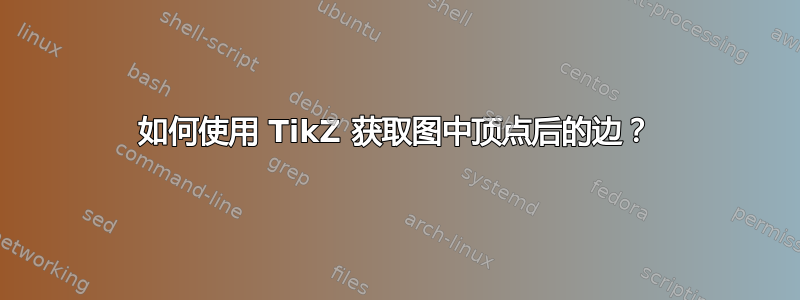
以下代码给了我一个图形,如何一个接一个地显示边,而不是一次显示整个图形。
\begin{figure}
\begin{tikzpicture}
[scale=.8,auto=left,every node/.style={circle,fill=blue!20}]
%\node (n6) at (1,10) {6};
\node (n4) at (3,4) {4};
\node (n5) at (3,2) {5};
\node (n1) at (1.5,2) {1};
\node (n2) at (3,6) {2};
\node (n3) at (4.5,2) {3};
\foreach \from/\to in {n2/n4,n4/n3,n4/n5,n4/n1}
\draw (\from) -- (\to);
\draw (n2) to [out=-20,in=35] (n3);
\draw (n2) to [out=200,in=135] (n1);
\draw (n2) to [out=-20,in=35] (n5);
\end{tikzpicture}
\caption{Closure of a Tree}
\end{figure}
答案1
你可以利用 TikZ 命令具有重叠感知功能这一事实(我使用\visible弯曲箭头来防止图形“跳来跳去”):
\documentclass{beamer}
\usepackage{tikz}
\usetikzlibrary{shapes.arrows}
\begin{document}
\begin{frame}
\begin{figure}
\centering
\begin{tikzpicture}
[scale=.8,auto=left,every node/.style={circle,fill=blue!20}]
%\node (n6) at (1,10) {6};
\node (n4) at (3,4) {4};
\node (n5) at (3,2) {5};
\node (n1) at (1.5,2) {1};
\node (n2) at (3,6) {2};
\node (n3) at (4.5,2) {3};
\foreach \from/\to [count=\xi from 2] in {n2/n4,n4/n3,n4/n5,n4/n1}
\draw<\xi-> (\from) -- (\to);
\visible<6->{\draw (n2) to [out=-20,in=35] (n3);}
\visible<7->{\draw (n2) to [out=200,in=135] (n1);}
\draw<8-> (n2) to [out=-20,in=35] (n5);
\end{tikzpicture}
\caption{Closure of a Tree}
\end{figure}
\end{frame}
\end{document}



